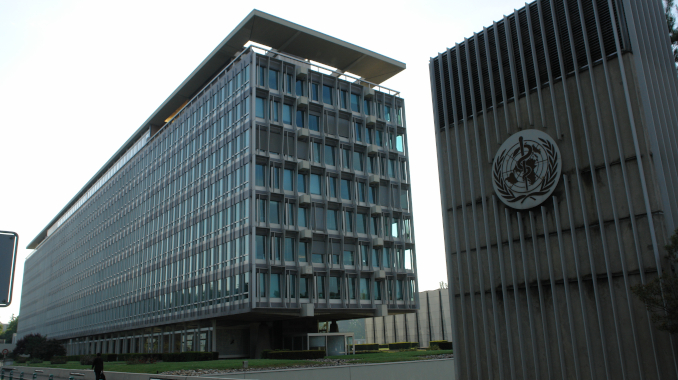
By Mark Anderson
Coming out of the 75th World Health Assembly, held between May 22-28, 2022, the Geneva-based World Health Organization (WHO) plans to seek additional authority amid an intensified focus on expanding and more strictly implementing the International Health Regulations (IHR)—a topic AFP covered in a previous edition.
According to the official transcript of a WHO press conference on June 1, WHO Director General Tedros Ghebreyesus emphasized making the global health body stronger in the area of “governance,” which is code for unelected bureaucrats interacting with the private-sector in public-private partnerships to foist changes upon the world, usually outside the confines of elected legislatures.
The WHO “is committed to stronger governance, accountability and efficiency,” Ghebreyesus stated in part. “The assembly also made important decisions on strengthening WHO’s preparedness for and response to health emergencies, including making targeted amendments to the International Health Regulations.”
Referring to an anticipated world pandemic treaty and a “stronger global [health] architecture,” Ghebreyesus continued by praising “a new international accord on pandemic preparedness” as well as “a sharpened IHR” which “will be a critical piece of a stronger global architecture for health emergency preparedness and response.”
Meanwhile, the British House of Commons Library, in an article published May 18, noted: “The WHO is negotiating a treaty on pandemic preparedness,” the roots of which go back to March of 2021. That’s when “a group of world leaders,” led by UK Prime Minister Boris Johnson, “announced an initiative for a new treaty on pandemic preparedness and response.” From there, “the initiative was taken to the WHO and will be negotiated, drafted and debated by a newly-established Intergovernmental Negotiation Body.”
Notably, under America’s Republican form of government, such things need to be debated by the U.S. Congress—and by the parliaments of other nations—not delegated to a distant, largely unaccountable extra-constitutional body. The idea of farming out the treaty debate to an obscure body may be what sparked opposition.
“A petition on the UK Parliament website is calling for the government to commit to not signing any international treaty on pandemic prevention and preparedness established by the WHO, unless this is approved through a public referendum,” the article also noted, while adding that the petition had at least 120,000 signatures in mid-May.
The above-noted “group of world leaders” stated the following in a March 30, 2021, online article entitled, “No government can address the threat of pandemics alone—we must come together”:
The main goal of this [pandemic] treaty would be to foster an all-of-government approach, strengthening national, regional, and global capacities and resilience to future pandemics. This includes greatly enhancing international cooperation to improve, for example, alert systems, data-sharing, research, and local, regional, and global production of medical and public health countermeasures such as vaccines, medicines, diagnostics, and personal protective equipment.
The list of 25 world leaders who authored that statement bears more than a passing resemblance to a list of attendees at a Bilderberg, World Economic Forum or G7 meeting. The list includes, besides Boris Johnson, Netherlands PM Mark Rutte, WHO Director General Ghebreyesus, Ukraine President Volodymyr Zelensky, Spanish PM Pedro Sanchez, French President Emmanuel Macron, former German Chancellor Angela Merkel, Norwegian PM Erna Solberg, and President of the European Council Charles Michel. Also included were the leaders of South Africa, Rwanda, Kenya, Greece, Albania, Tunisia, Senegal, Serbia, Indonesia, Trinidad-Tobago, Costa Rica, Chile and Korea.
The WHO also is trying to reach what are strikingly called “triple billion targets” as well as “health-related” sustainable development goals (SDGs) outlined by the United Nations. SDGs are all-encompassing benchmarks that are tied to “climate change” and targeted emissions reductions. SDGs are a core component of the UN’s infamous Agenda 2030 and are unequivocally designed for global governance.
To see them tied to global health policies indicates a major power grab by the WHO—which would open the door for Big Pharma to push its often risky, sometimes dangerous vaccines on the public through a more one-size-fits-all approach.
“The triple billion targets are an ambitious initiative to improve the health of billions of people by 2023,” WHO literature explains in the multi-faceted language of “globalese,” which tends to make power grabs harder to detect.






Englands health care system is collapsing as we speak. Tens of thousands of surgeries cancelled, no doctor appointments, or years, sometime or the very sick. withholding treatments etc. This is what happens when you provide health care to people who don’t pay into the system especially ones with high birth defect rate from inbreeding.